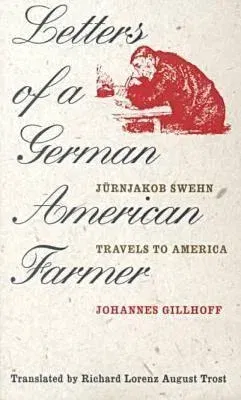Early in the twentieth century, drawing upon the hundreds of letters
written to his father by students who had emigrated to northeastern Iowa
from Mecklenburg, in northeastern Germany, Johannes Gillhoff created the
composite character of Juernjakob Swehn: the archetype of the upright,
honest mensch who personified the German immigrant, on his way to a
better life through ambition and hard work. Gillhoff's farmer-hero,
planting and harvesting his Iowa acres, joking with his neighbors during
the snowy winters, building a church with his own hands, proved so
popular with the German public that a million copies of Jürnjakob Swehn
der Amerikafahrer are in print. Now for the first time this wise and
endearing book is available in English.
"First, let's talk about pigs,"Juernjakob Swehn writes from his farm in
Iowa. "In America, pigs have a curly tail and talk in Low German so I
can understand them." Swehn builds a log house and makes a success of
farming, marries a woman who's "a whole different nation that has its
confidence from the inside," raises a family, and becomes an elder in
the Lutheran church. He recognizes his good fortune but acknowledges
that memories of his village grow stronger every year, that "being
homesick is the best thing that home can do for you ...no power on earth
holds on to you like your homeland." It is this sense of home, both in
Iowa and in Mecklenburg, that makes Juernjakob Swehn appeal to today's
readers as much as he appealed to readers in 1916.

